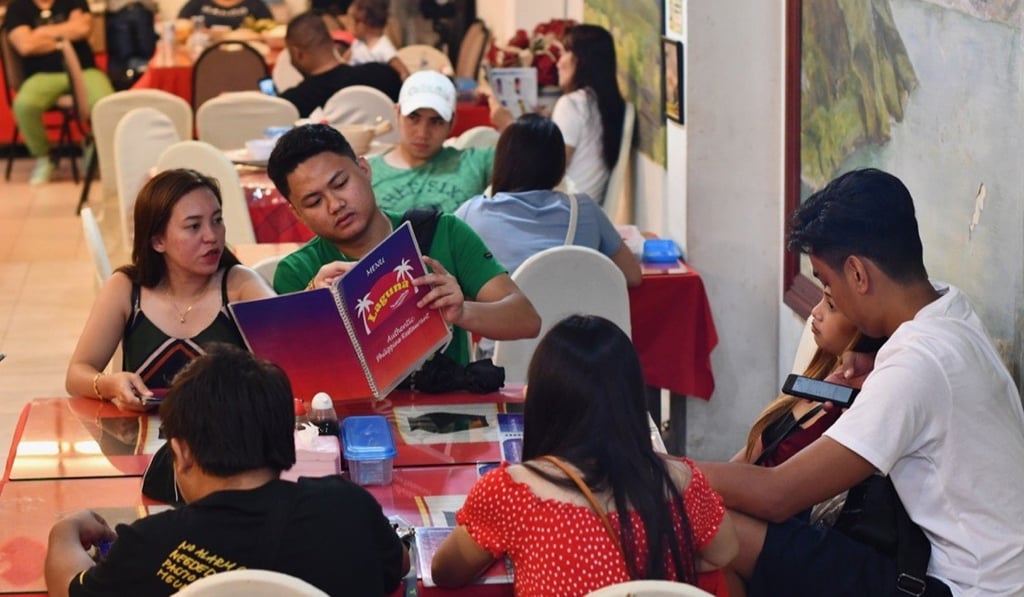Advertisement
For many Malaysia-based Filipinos, in this year’s polls it’s President Rodrigo Duterte all the way
- Three years ago, the outspoken populist president took 70 per cent of the vote among Filipinos living overseas
- Many in Malaysia now expect the candidates he backs to win big in next month’s midterm elections
Reading Time:3 minutes
Why you can trust SCMP

Laguna Restaurant, a two minute walk downhill from St. John’s Cathedral – the centre of Catholic worship in Kuala Lumpur – is a home away from home for Philippine expatriates in Malaysia hankering for a taste of the motherland.
Owner Ronnie Tan launched Laguna six and half years ago after spotting a gap in the market in a country where hundreds of thousands of Filipinos live.
Malaysian PM warns Philippines about influx of foreign nationals
They work in a diverse range of industries – from construction to casinos, and IT to domestic work – but at the weekend many can be found in the Laguna. “On weekends it is full. If you say Sunday, I believe 95 per cent are Filipino customers,” Tan said.
Advertisement
Conversations usually revolve around the latest gossip, news from back home and possible job opportunities, but with the Philippines’ midterm elections fast approaching on May 13, much of the chatter has now turned to voting preferences.

Advertisement
The biggest question for many Malaysia-based Filipinos seems to be whether candidates for the Senate and House of Representatives are pro- or anti- Rodrigo Duterte, the outspoken Philippine president who is almost halfway through a six-year term in office.
Advertisement
Select Voice
Select Speed
1.00x